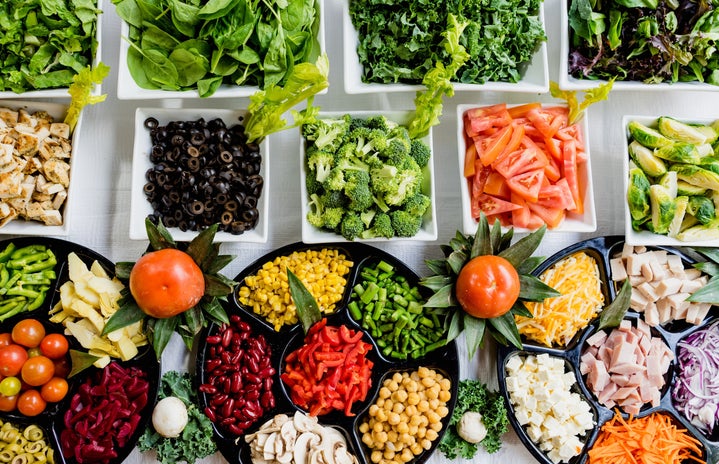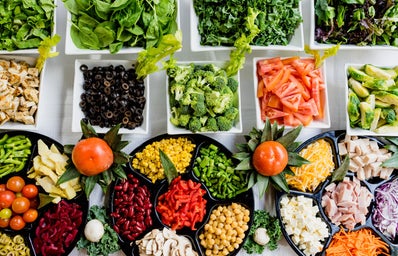Diet culture is everywhere. It’s an undeniable fact and has a long and complicated history. For this article, I would like to focus on where diet culture is especially pervasive today, outside of the gym and doctor’s office: sustainability. People are mobilized and educated more than I have ever seen to save our planet, and to save ourselves. However, amidst advocacy, sustainable has become a new buzzword appropriated by corporations to make their products marketable even if they aren’t, i.e. eco-capitalism, as well as in the perpetuation of diet culture.
There is no simple way to describe diet culture simply because it has invaded every facet of our lives and society, taking on never ending facades where you might not even be able to see it. However, diet culture is more than a diet. It’s thinspiration and fitspiration, eating disorders and disordered eating, pseudoscience and capitalism. One way to describe it is the pathologization of our bodies, especially fat, ill, or differently-abled. It reduces us as people down to a number on a scale, as if everything was diagnosable, correlated, and accessible. Diet culture teaches us that our bodies are a problem to be solved, that, in our natural state, we are a ‘before’ photo. It is food and body shaming, discrimination and privilege. Diet culture is what places some obscure moral value on food and our appearance.
More from NEDA: https://www.nationaleatingdisorders.org/blog/recognizing-and-resisting-diet-culture
My only exception is that not all diets are bad, whether for religion, accessibility, moral or personal beliefs, etcetera. This is not part of diet culture. Diet culture comes into play when the choices you make about your life are motivated, in part, by weight loss or changing your body. Often, this is portrayed as a lifestyle that will solve other problems in your life, you will be physically and mentally healthy, protect yourself from, or even eradicate, diseases such as cancer or diabetes, and have career, financial, romantic success. This is all blatantly wrong, both scientifically and logically. Not to mention the fact that over 95% of diets fail in every possible way and 25% lead to eating disorders (and this is only considering those who were diagnosed or diagnosable according to medical standards which are inconsistent and often to do not account for atypical eating disorders.)
That brings us to today, where in an era of environmental overhaul, diet culture has once again infested a popular, new branch of society and politics. Two years ago, I watched the movie Okja with my family. It’s available on Netflix and incredible if I choose to disregard some of its repercussions. Basically, it is a fictional commentary on animal abuse, environmental destruction, unnecessary genetic modification, and factory farms. After watching this movie, I decided to go vegetarian.
My original goals were harmless. I grew up on a farm where we bred and raised chickens, goats, and lamb so I never had to be concerned about where my meat was coming from. When my siblings and I were children, my mom grew all our vegetables in a garden. This changed with new careers and growing children. I believed that by becoming vegetarian, even vegan, I would be returning to my roots and doing something good. I believed I was being a moral person, helping animals, and the environment.
Which brings me to another point. The bogus idea that changing your diet, by going vegan or vegetarian, will save the world is all over social media. It completely removes all responsibility from corporations, 100 of which cause 71% of environmental damage, food shames, and portrays the diet as the solution. This ‘diet saviorism’ is one way diet culture integrates the world of activism. It frames itself as something it is not, and fills some need you have with dangerous and unhealthy habits that walk the slippery slope of disordered eating.
For me, this ‘need’ was that of purpose and the need to prove to myself that I was an ethical person. But soon, this evolved. At its root, my diet was founded in restriction. It became easier to say yes to no food at all than to meet my basic needs. I thought that because I was vegetarian, I was healthier and I was going to lose weight. And because I was losing weight, I was healthier. I fell into the trap of not believing I was worthy of food while also believing that the only thing keeping me alive was harming me. When I unknowingly set my foot on a path of restriction, I thought that it was the most attainable goal and rewarding goal. After two years, I wasn’t vegetarian anymore. I was battling disordered eating and it disrupted every part of my life.
When I talk about vegan and vegetarian diets, almost every person says that one of the reasons they choose to change their diet is to lose weight. Diet culture is responsible for the belief that all bodies have the potential to be skinny, therefore ‘healthy’, and the solution is a diet which correlates to weight loss. Then, when diets fail, the person is blamed. Even the idea of cheat days shames us, such as when I would eat meat or a forbidden food and become sick to the stomach that somehow I was morally compromised. In reality, diets are a false reality. It is false, poodle science that tells us that bodies don’t come in all shapes and sizes and can’t exist in this variety of shapes and sizes naturally. (For example, all the time people are referred to as ‘naturally skinny’ but never ‘naturally fat’, etc.,.)
Additionally, when we look at veganism and vegetarianism as a whole, ingredients can go unacknowledged. Expensive superfoods become fads, shaping specific diets as superior, therefore elite. Then, you must consider how and where these ingredients are sourced. Are they fair trade? Who is harvesting them, and whose land are they harvested on? Organic or GMO-free is often just an (unregulated) price tag. It is impossible to eat a wholly fair-trade diet. Now, I am not saying that you shouldn’t or can’t eat certain foods. I am simply pointing out how nuanced restrictive diets can be. They hijack our brains, and for some even become neurologically addictive, to put up blinders and keep us in one form of submission.
Eating sustainably is not about the diet, I would argue its about consumption. Too often we are told that our value is on the food we eat, and the food we eat determined our moral character. No matter what food you may choose, diet culture and these ‘values’ do not acknowledge the intersections of ableism, racism, mental health, sexism, capitalism, economic accessibility, and so on. By forbidding certain foods and restricting others, even though a diet may seem sustainable to the planet on surface, it is never sustainable to the mental and physical health of a person.
I urge you to resist these beliefs, to think about what you are (or are not) eating and why, and challenge yourself to have food freedom. It is never the person’s fault for encountering these difficulties because for our whole lives we have lived diet culture as a truth. Now, it isn’t about a diet. It’s about your relationship to your body, and that to the world.
https://beautifullybrokenjourney.com/what-is-diet-culture/
https://twitter.com/NEDAstaff/status/1164172053945225222/photo/1 @foodandfearless @neda
http://newsroom.ucla.edu/releases/Dieting-Does-Not-Work-UCLA-Researchers-7832
https://www.theguardian.com/sustainable-business/2017/jul/10/100-fossil-…



